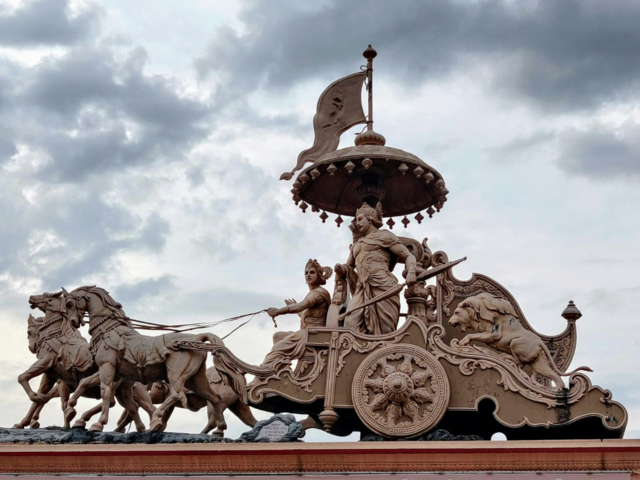
Trust Futurist and Innovation Strategist, Philipp Kristian Diekhöner shares a few tips on dealing with publicity crisi...
Mar 12, 2020, 10:00 IST
brands
Innovation Strategist Philipp Kristian Diekhöner shares why consumers never get tired of the social media banters between McDonald’s and Burger King
Mar 12, 2020, 10:00 IST
Trust Futurist and Innovation Strategist, Philipp Kristian Diekhöner shares a few tips on dealing with publicity crisi...
- Competitive advertising makes for a good public spectacle. If executed well, it helps generate engagement on social media platforms and create organic PR.
- We have all grown up watching ad wars between Burger King and McDonald’s and still look forward to watching their campaigns or tweets openly taking digs at each other.
- Philipp Kristian Diekhöner, Trust Futurist & Innovation Strategist tells us the reasons why the audience enjoys Burger King and McDonald's social media banters and what corrective actions can brands take if they go wrong with their marketing strategies.
Over the years, the two fast-food giants Burger King and McDonald’s have continued to engage in various public banters. Their strategy is one of the most talked about in boardrooms as consumers have always loved their campaigns. The burger-wars have continued since the 1970’s and have become a part of pop-culture as the phrase is also included in Wikipedia.
These wars have helped break monotony, generate chatter on social media, laugh in dismal times and made sure the audience doesn't skip ads while watching TV. However, the advertising campaigns made to antagonise your competitor can go either way. It can be sometimes confused with witless sloganeering. Therefore, there is a thin line to tread between looking down on them versus acknowledging how they let your creative juices flow by simply existing. So how do you get it right and what to do if you go terribly wrong?
This is exactly what we asked Trust Futurist and Innovation Strategist, Philipp Kristian Diekhöner. He is also the author of The Trust Economy, a book on why trust is the world’s most impactful economic power.
He said, “First of all, humor is a fabulous way of building trust and I do think banter is actually perfectly acceptable because it still suggests that you like the other party. Whereas public speech that is particularly trying to bad mouth another individual or company, generally comes off as weakness.”
Diekhöner gave another example of Mercedes and BMW and one of their iconic advertising battles. It was when CEO of Mercedes Benz, Dieter Zetsche retired that BMW had released an advertisement thanking him for ‘inspiring competition for so many years.’
Explaining why this campaign worked well in the market, Diekhöner said, “The idea here is that both of these brands are obviously market leaders, so they understand that they are iconic and that they are at the top of their game. However, they also treat their relationship as competitors and as somewhat playful, and this is exactly how as a brand you demonstrate ‘power.’ If you can afford to be friendly and bantery with your competitors, you're actually showing that you're powerful and trusted. If you, however, bad mouth everybody -- trying to look better, that's a strategy that is much easier for people to identify as actually a sign of ‘weakness’, and it's much more likely that they will distrust you.”
He highlighted how building trust is the key part of a brand’s journey. It is the core pillar which holds the brand image together. Without that, engaging in rivalry on social media might not come to fruition.
It was trust that Mondelez’s Cadbury had built over the years that its audience moved past one of its biggest failures very quickly. It had found itself amidst a storm when a few instances of worms in its Dairy Milk chocolates were spotted in Maharashtra.
Diekhöner further shared an action plan for rebuilding trust if brands go through a major publicity crisis.
He said, “First thing that you want to do is actually understand the nature of the breach, meaning how emotionally involved your customer was in this breach. If this product pertains to say baby formula, the emotional volume is very high and if it pertains to maybe petrol or other more transactional or less emotionally-important things, it's a lot easier to salvage trust as you're less emotionally involved with the product. The other thing is to understand your history of trust breaches. How often has this happened? If you breach trust more often, people are going to be far more skeptical when you try to rebuild trust in your brand. And then the other thing is about how you handle the situation. So how honest and vulnerable and courageous are you when it happens? Can you admit that you were wrong instead of justifying the situation or making excuses, which is somehow human nature. The best thing to do is just to admit the wrongdoing. That's the only way to salvage whatever is still left to rebuild.”
Diekhöner says that we should treat brands like humans. If you hurt a person and you make excuses for that, they are not going to be satisfied. In fact, you should be genuinely sorry. However, he says that not all brands are gutsy enough to do that.
“I see this time and time again that it doesn't matter whether they're leaders or people involved in something, they simply do not have the guts to admit their wrongdoings. So I absolutely urge you to focus on that. And then you can use the Trust Economy Model from my book to systematically rebuild trust and then to create from that vicious downward spiral a virtuous cycle,” concluded Diekhöner.
INSIDER INTELLIGENCE REPORTS







